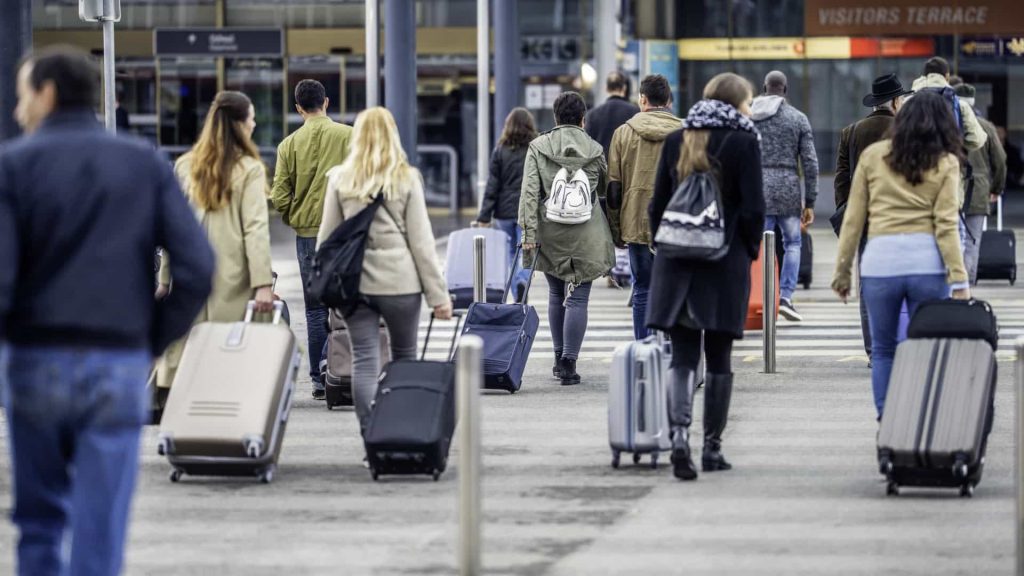RIO DE JANEIRO, BRAZIL – For years, the Portuguese government has been watching its population decline, with the birth rate falling and the mortality rate showing no reduction.
In 2018, Portugal had the fourth-lowest birth rate among EU members – a major problem for the future of the Lusitanian nation’s economy.

In order to reverse this situation, the Portuguese government launched the “Return Program”. With the slogan: “It’s time to come home, your country supports your return”, the initiative seeks to encourage Portuguese citizens who wish to return to Portugal and have left the country by December 2015.
Financial aid
The program offers a range of measures to assist those who choose to return to Portugal, including financial support, a special credit line to support business investment and the property market, and a number of tax exemptions.
The full financial support may reach EUR 6,536 (R$30,000) if workers are effectively employed in another country. The amount is granted by the Institute of Employment and Professional Training (IEFP).
It should be noted that the financial support also varies according to the profile of those enrolled in the program and, in particular, on the place chosen to live. Large cities like Lisbon tend to offer much smaller financial incentives – or zero – than villages in the interior of the country.

Fabiano de Abreu, a Portuguese-Brazilian journalist who founded Jornal Paivense, explained that the amounts and benefits greatly vary between villages, towns, and cities and that the government analyses each situation to define which aid the migrant will be entitled to.
“If people wish to receive the full benefits, from financial aid, tax exemption and eased real estate financing, they must choose between a village or a small town. For those who wish to move to large cities, it is important that they know that they will hardly have all the benefits,” explained Abreu. “But it is important to know that each case is analyzed in particular by the government”.
In addition to financial assistance, the program also includes equivalences and acknowledgment of academic degrees obtained abroad, such as bachelor’s, masters and doctoral degrees.
There is also the so-called Complementary Support, which contemplates expenses with the return trip to the country and the transportation of goods, in addition to any eventual expense with acknowledgment of academic qualifications.
However, this other aid from the Portuguese government has certain limitations. The limit on spending is set using the Social Support Index (IAS), an amount that serves as a reference for Social Security in Portugal for the calculation of workers’ contributions, currently set at EUR 453.76 (R$2,000).

The aid with travel costs to Portugal for the recipient and other family members, has a limit of three times the value of the IAS, EUR 1,361.28 euros (R$6,200).
The contribution of the Program for expenses with the transfer of goods to Portugal cannot exceed twice the value of IAS, or EUR 907.52 (R$4,100).
The IEFP still promises a significant exemption on Portuguese taxes. For emigrants returning to Portugal by December 2020, there will be a 50 percent discount on taxes on workers’ income. The benefit is valid for five years.
For Abreu, all the aid and benefits offered are a good strategy and should help warm up the Portuguese economy, but they may not be as interesting for most Portuguese and their descendants living abroad.
“The major problem that Portugal faces is that the children and grandchildren of its descendants, for the most part, are very well off abroad. The government is trying to bring these people back aware that many may not return because they have an excellent financial situation outside Portugal,” he explains.
Program figures
Between July and December 2019, the Program received 481 applications, according to data from the Portuguese Ministry of Labor. In addition to these people, there were 544 family members and dependents, reaching a total of 1025 people registered during the period. The budget for the program in 2019 was EUR10 million.

Of all the applications received, 70 percent refer to people who left Portugal between 2011 and 2015. Some 45 percent of applicants who have used the program have a university degree and the vast majority (83 percent) are aged between 25 and 44.
The country with the highest concentration of Lusitanians wanting to return to Portugal is the United Kingdom (19 percent), followed by France (17 percent) and Switzerland (14 percent). Brazil (eight percent), Spain (six percent) and Angola (six percent) are also included in the list.
Joaquim Moreira, CEO of MC Contábil and a specialist in welcoming Brazilians in Portugal for business, said that many Portuguese and Lusitanian descendants living in Brazil would like to return to Portugal.
According to information from MC Contábil’s advisory board, one of the Portuguese government’s aims is to bring back the almost 5 million direct descendants in Brazil, thus giving them a priority.
Miguel Cabrita, secretary of state for employment, said at a media conference the measure is an active policy to promote employment in the country, established not to force people to return, but rather to support people who want to return. “It is aimed at the entire Portuguese diaspora and at all kinds of qualifications,” Cabrita said.
Full details on the necessary procedures, along with the required documentation and information on the initiative can be accessed through the official website of the Return Program.
More information here.

